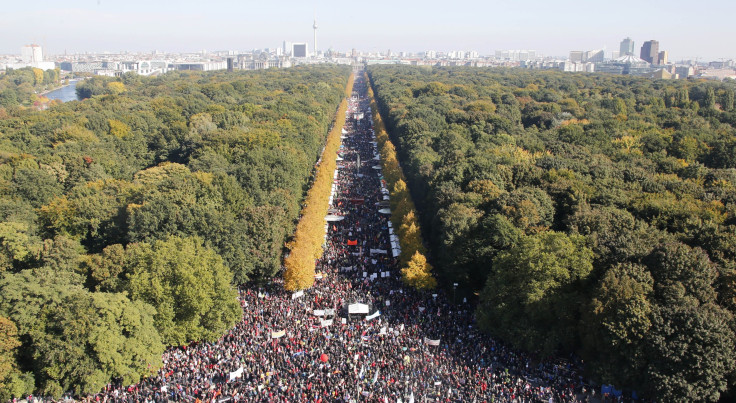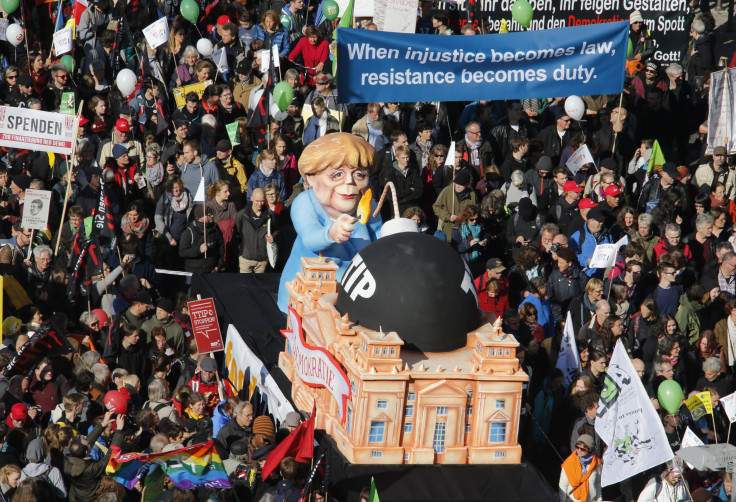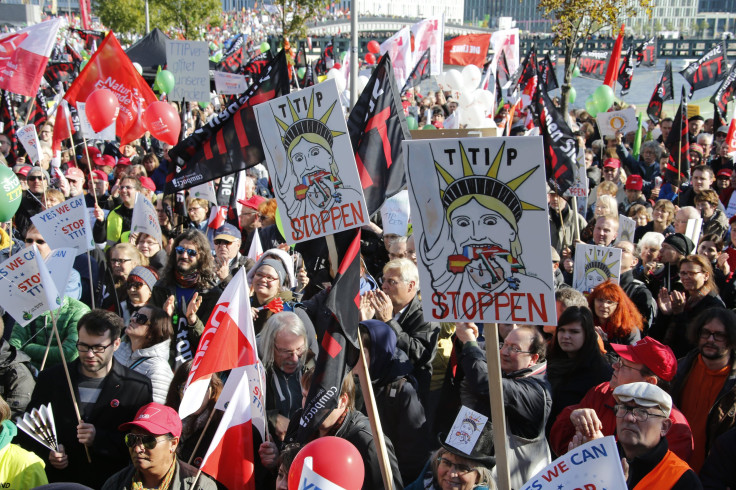Berlin Demonstrations Draw At Least 150,000 In Opposition To Transatlantic Free Trade Deal

Just days after the U.S. and 11 other nations signed onto the historic Trans-Pacific Partnership, more than 100,000 Germans took to the streets of Berlin to protest another proposed free trade deal, this one between the U.S. and Europe.
Trade unions and environmental groups led the demonstrations with calls to protect Germany’s domestic standards governing food safety, ecological protection and labor standards, which they see as being threatened by the Transatlantic Trade and Investment Partnership (TTIP).
Protest organizers estimated the attendance at 250,000, though police put the total at 150,000. In either case, the protests were among the largest Germany’s capital has seen in “many, many years,” one organizer told Reuters.

Protesters carried signs depicting German Prime Minister Angela Merkel, a proponent of the deal, embracing her counterpart President Obama. A float showed Merkel lighting a bomb labeled “TTIP.”
Opponents of the 29-nation deal, which aims to bring the U.S. and the European Union in closer regulatory alignment, worry that it could empower private corporations to whittle away at European product and environmental regulations.
Consumer groups, for instance, are concerned that tough E.U. laws restricting the use of genetically modified foods could be watered down in an agreement with the U.S., which largely permits such foods. Labor unions criticize the deal’s potential to erode Europe’s labor standards, which are much more protective than those in the U.S.
As a counter to the protests, the German government bought full-page ads in several national newspapers decrying “scaremongering” regarding the trade deal. “We have the chance to set new and good standards for growing global trade with ambitious standards for the environment and consumers,” the German economic minister wrote.
Economists have estimated that the deal could expand the European economy by 120 billion euros ($136 billion).

The Trans-Pacific Partnership (TPP), which U.S. State Department officials have described as a companion to the TTIP, still needs to be approved by American legislators. Prominent U.S. lawmakers have lodged complaints over the TPP deal’s concessions on industry-favored measures such as pharmaceutical patents and alleged currency manipulation.
© Copyright IBTimes 2024. All rights reserved.












